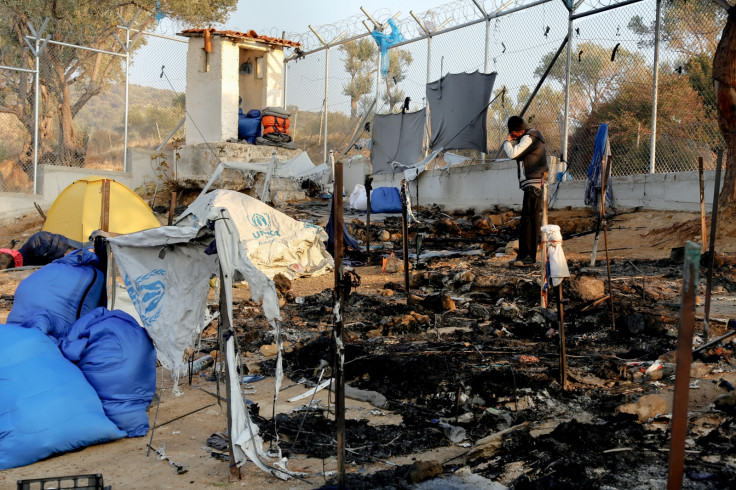Protests break out in migrant Greek camp after woman and child die in gas blast
The Moria camp on the island of Lesbos is 200% oversubscribed, hosting more than 6,000 people.
A group of migrants frustrated with the living conditions of the Moria camp in the Greek island of Lesbos clashed with police after a gas explosion caused the death of two people.
A woman in her sixties, was reportedly killed when the gas canister she was using to cook exploded. A six-year-old boy in a tent nearby was also killed, while his four-year-old brother and his mother suffered serious injuries in the blast and were brought to a hospital in Athens, the police said.
The damages caused by the explosion were aggravated by other smaller fires started by migrants who clashed with the police during the ensuing evacuation, leaving six people slightly injured, a police source told AFP.
"There is accumulated frustration among them, they have been waiting for so long, so there are tensions," UNHCR spokesperson Stella Nanou told IBTimes UK. Nanou said that 200 people, including 38 unaccompanied children were left without accommodation, after the fire. "The situation now is calm and efforts are being made to find shelter for those people whose tents were burnt down," she added.
Greek prime minister Alexis Tsipras expressed dismay at the news of the deaths. He told the press on 25 November he was "shocked, as is the entire Greek nation, by the tragic event" on Lesbos, even though several fires have broken out in refugee camps in the Greek islands recently.

On 18 November, a camp on the island of Chios was set ablaze by unidentified attackers. The police suspected far-right thugs threw Molotov cocktails and large rocks from elevated areas surrounding the Souda camp, causing around 100 refugees, including women and children to spend the night in the cold after their tents were destroyed.
The Moria camp was also partially destroyed by a fire in September. The camp is overcrowded at over 200% capacity, hosting more than 6000 people while it is meant to accommodate 2000-2500 people as International Organisation for Migration (IOM) figures show.
According to UNHCR's Nanou, these incidents should remind authorities of the urgency to improve conditions for refugees on the island, strengthening the Greek asylum service as to carry out detention and identification procedures more efficiently and within the timeframes set by the law. "This will reduce overcrowding and the frustrations of the people waiting on the island under extremely difficult conditions and without clear perspectives in sight," she said.
Official data shows that out of the nearly 60,000 asylum seekers who are stranded in Greece, around 16000 people are in migrant camps on five Greek islands awaiting decisions about the status of their asylum applications. If this is denied, they will be sent back to Turkey as part of a European Union deal aimed at stemming the influx of migrants crossing the Mediterranean sea.
As the Greece-Turkey route became inaccessible, most migrants attempt the crossing departing from Libya, and sometimes Egypt, heading towards Italy. So far this year, over 4700 people have drowned or disappeared at sea, the highest migrant death toll on record.
© Copyright IBTimes 2025. All rights reserved.






















